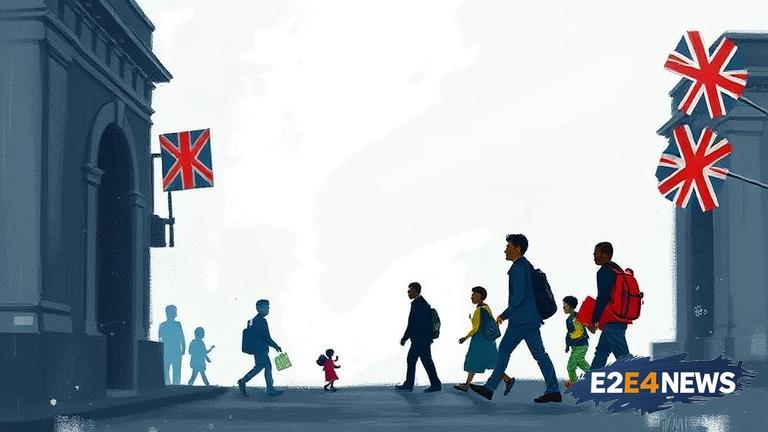The United Kingdom is set to undergo a significant shift in its migration policy, with plans to deport migrants to France within a matter of weeks. This move comes as Nigel Farage, a prominent political figure, vows to scrap the Human Rights Law, which has been a cornerstone of British legislation for decades. The deportation plan has sparked intense debate, with many arguing that it is a necessary step to curb illegal immigration, while others claim it is an inhumane and unjust approach. The UK government has been under pressure to address the issue of migration, particularly in the wake of the recent migrant crisis. The plan to deport migrants to France is seen as a key part of this effort, with the government aiming to reduce the number of asylum seekers and migrants entering the country. However, the move has been met with criticism from human rights groups, who argue that it will put vulnerable individuals at risk. Nigel Farage, the leader of the Reform UK party, has been a vocal advocate for scrapping the Human Rights Law, which he claims is being used to prevent the deportation of migrants. Farage has argued that the law is being exploited by lawyers and activists to prevent the government from taking action against illegal immigration. The Human Rights Law, which was introduced in 1998, enshrines the rights set out in the European Convention on Human Rights into British law. It has been the subject of controversy in recent years, with some arguing that it is being used to undermine the government’s ability to tackle crime and immigration. The UK government has previously attempted to reform the Human Rights Law, but these efforts have been met with resistance from human rights groups and opposition parties. The latest move to scrap the law altogether is likely to be highly contentious, with many arguing that it will have serious implications for the rights of British citizens. The deportation plan and the potential repeal of the Human Rights Law are part of a broader effort by the UK government to toughen its approach to migration. The government has also announced plans to increase funding for border control and to introduce new measures to deter asylum seekers. The move has been welcomed by some, who argue that it is necessary to protect the integrity of the UK’s borders. However, others have expressed concern that it will lead to a rise in human trafficking and people smuggling. The UK’s migration policy has been the subject of intense debate in recent years, with many arguing that it is in need of reform. The government’s latest moves are likely to be closely watched, both domestically and internationally, as the UK seeks to navigate the complex and often contentious issue of migration. The potential repeal of the Human Rights Law has significant implications, not just for migrants, but for all British citizens. It raises important questions about the balance between individual rights and the need to maintain national security and public safety. As the UK government moves forward with its plans, it will be important to consider the potential consequences of these actions, both for the country and for the individuals affected. The deportation plan and the potential repeal of the Human Rights Law are just the latest developments in the ongoing debate about migration and human rights in the UK. As the situation continues to evolve, it is likely that we will see further controversy and debate in the coming weeks and months. The UK government’s approach to migration has been shaped by a range of factors, including the migrant crisis, Brexit, and the COVID-19 pandemic. The government has faced pressure from various groups, including human rights organizations, migrant advocacy groups, and anti-immigration campaigners. The latest moves are an attempt to address these competing demands and to find a solution to the complex issue of migration. However, the outcome is far from certain, and it remains to be seen how the situation will unfold in the coming weeks and months. The UK’s migration policy has significant implications, not just for the country, but for the wider world. The government’s approach will be closely watched by other countries, and it has the potential to influence the global debate about migration and human rights. As the UK navigates this complex and often contentious issue, it is likely that we will see further developments and controversy in the coming weeks and months.
